Despite all of this, challenges in counselor training are just as real (and varied). The road to becoming a professional counselor—be it SAC programs, SAC certification, or Certified Alcohol and Drug Counselor Training—is a challenge, and one that takes hard work and commitment to see through, but even the most dedicated need to be able to bounce back, roll with the punches, and put a plan into place for working through any roadblocks they will encounter.
This journey is fulfilling, but it is also one of the most challenging careers a person can embark on, which is why at Laitinen Academy, we truly get this. If students can recognize common barriers to success and how to overcome them, it can better prepare them for a successful and sustainable profession in counseling.
Why Do Many Aspiring Counselors Face Challenges During Training?
Counselor training, in general, whether through substance abuse counselor training, a mental health counselor certificate program, or drug and alcohol counselor training, is difficult because it combines the often demanding, even controversial, elements of academic education with skills that are so personal to humans.
These may include the following challenges:
Heavy emotions and managing fieldwork with Clients
Fulfilling tough requirements for certification of credentials, such as drug and alcohol counselor certification.
Balancing between study, placements, and other personal commitments.
Dealing with financial strain as it relates to tuition, materials, and fewer work hours.
Being able to serve others in their own pain, but also holding space for your own vulnerability while doing that.
Life challenges are not merely challenges; these are growth opportunities, and challenges will make us better professionals when we deal with them in the right way.
Emotional Fatigue
What causes emotional fatigue in counselor training?
Emotional fatigue is one of the most underrated hurdles in counselor training. Vicarious trauma occurs when a counselor’s exposure to other people’s trauma begins to deplete their mental and emotional reserves. SAC programs are involved with those dealing with addiction, homelessness, or family breakdown; this can take a toll on students.
Common causes include:
Hearing the same awful personal stories over and over again.
Loaded with unrealistic expectations of always having to be emotionally “present.”
Poor emotional boundary formation
Limited recovery and self-care amid busy training seasons.

How can students manage stress and avoid burnout?
Develop emotional boundaries: Differentiate between empathy and over-identification with clients.
Regular supervision: Look for supervision and advice from senior mentors to reflect on challenging cases.
Normalizing self-care routines: Undertakings such as working out, journaling, or meditating can help bring emotional equilibrium back.
Peer networks: Other trainees in substance abuse counselor training can help with encouragement during tough times.
Relaxation techniques: Practices such as deep breathing or guided relaxation can help prevent stress from getting out of hand.
Certification Hurdles
What are the main barriers to earning certification?
While necessary for credibility (SAC certification or drug and alcohol counselor certification), the certification process is often a convoluted path. Some have barriers because even in college, they must:
- Rigorous education requirements—often with additional pre-training coursework that’s needed to qualify for formal education.
- Months or years of mandatory supervised practice hours to complete.
- Difficult examinations that evaluate theoretical knowledge and practical application.
- Continuing education requirements must be met on an ongoing basis to keep certification status.
How can students prepare to meet requirements successfully?
Start planning in advance: As soon as you begin your Certified Alcohol and Drug Counselor Training, keep track of your required coursework, supervised hours, and deadlines.
Don’t forget about practice tests: Coming across practice tests or review guides before your certification exams can actually help you cut down on anxiety.
Seek out mentors: Mentors with more experience can provide practical knowledge as well as field experience.
Stay updated: Certification requirements change, so you should always check with the appropriate licensing board.
Balancing Study and Practical Work
How challenging is it to manage coursework with field training?
While that level of immersion is often necessary, many of the would-be counselors will learn that the combination of classroom study and fieldwork can become daunting. For example, in a mental health counselor certificate program, students might attend lectures during the morning and pace back to their community clinics in the afternoon, squeezing the rest and their personal life into the hours in between.
What strategies help maintain balance?
Structured time-blocking: Time-blocking with fixed blocks of time for study, client work, and yourself
Prioritize: Determine which tasks are the most pressing and tackle those first.
Flexibility negotiating: Many of the supervisors providing drug and alcohol counselor training will mediate a modified schedule if the week is particularly high-demand academically.
Use tech: Calendar apps and task managers, and digital reminders can help you stay on track with assignments and appointments.
Avoid overcommitment: Set your limits and learn to say no at times.
Financial and Time Barriers
What costs and scheduling issues do students encounter?
Counseling represents a substantial investment of your time and money. Some common burdens include:
- Costs For SAC Programs or Certified Alcohol and Drug Counselor Training
- Other expenses in the form of books, study materials, and fees for the certification exam.
- Lower income if you cut back on your work to train.
- Do not have the time due to family, child rearing, or other personal obligations.
How can flexible or online programs help?
Reduced expenses: Zero travel or moving overheads
Self-directed study: Important when you have a job/studies demanding time and attention.
Accessibility: Students from the countryside without long-distance traveling have the opportunity to join in.
Pre-recorded lectures: Help to revise tough lessons at your own pace.
Training as an online substance abuse counselor also makes it easier to reach students who may not have programs like these in their area.
Are There Other Hidden Challenges?
By acknowledging these challenges early, students can seek resources to address them before they become major roadblocks.
Cultural competence: Counselors need to remain sensitive and continue learning about the clients and community they serve.
Personal triggers: Emotional difficulty with certain cases based on the trainee’s personal history (i.e., the client’s cases may be too similar to their own background, and they cannot be objective).
Imposter syndrome: Believe it or not, many trainees have one thing in common — they are constantly doubting their abilities even though they have progressed in their training.
Pressure in networking: It is uncomfortable to network as an inexperienced individual.
Being aware of these obstacles early gives students an opportunity to find resources to help them address these concerns before they become insurmountable obstacles.
Conclusion: Why Resilience Is Key
The quality of the counselor training, its rigors, will in the end define who you will be as a counselor. From being drained emotionally to facing hurdles in certification to balancing practical work with academics, every challenge is teaching us adaptability and resilience.
They need resilience, not as an ability or an asset but as a necessity. Individuals who succeed in SAC certification or substance abuse counselor training generally do so with the help of support systems and planning.
Laitinen Academy prepares you for each phase of the journey so that you are equipped with the necessary tools, mindset, and resources for success. All of our programs (Certified Alcohol and Drug Counselor Training or otherwise) are created to aid you in overcoming issues you may face along the way, and eventually support you in building a sustainable, long-term career in helping others.
FAQs
1. What’s the hardest part of counselor training?
Combining raw emotion with professionalism, as well as almost unreal academic and certification requirements.
2. Do SAC programs require prior counseling experience?
Not always — while some SAC programs accept students with little to no experience, they might have educational requirements.
3. Is online substance abuse counselor training effective?
Online programs, if accredited, can be just as good as in-person programs, especially for more theoretically focused classes.
4. How long does it take to earn drug and alcohol counselor certification?
Usually 1–3 years based on education background, type of training, and number of supervised hours needed.
5. Can I work while completing my mental health counselor certificate program?
Yes, though time management will be key. Flexible or part-time programs ensure that one can balance the two.
